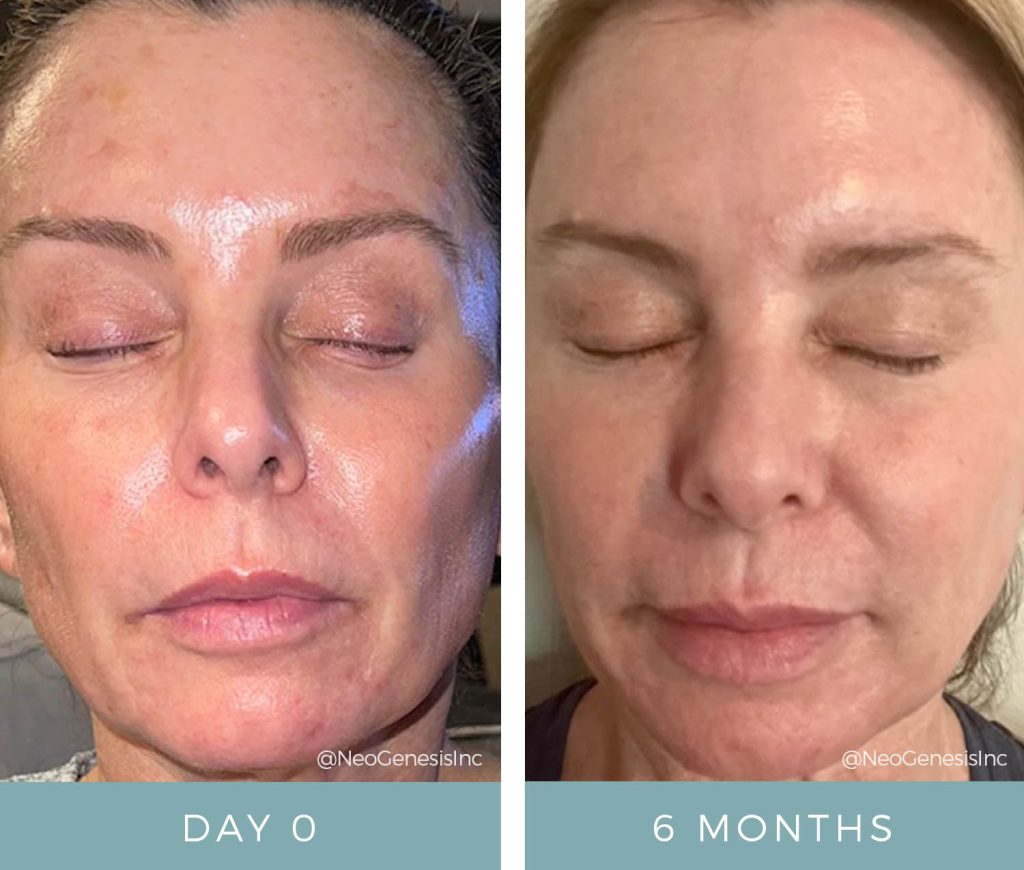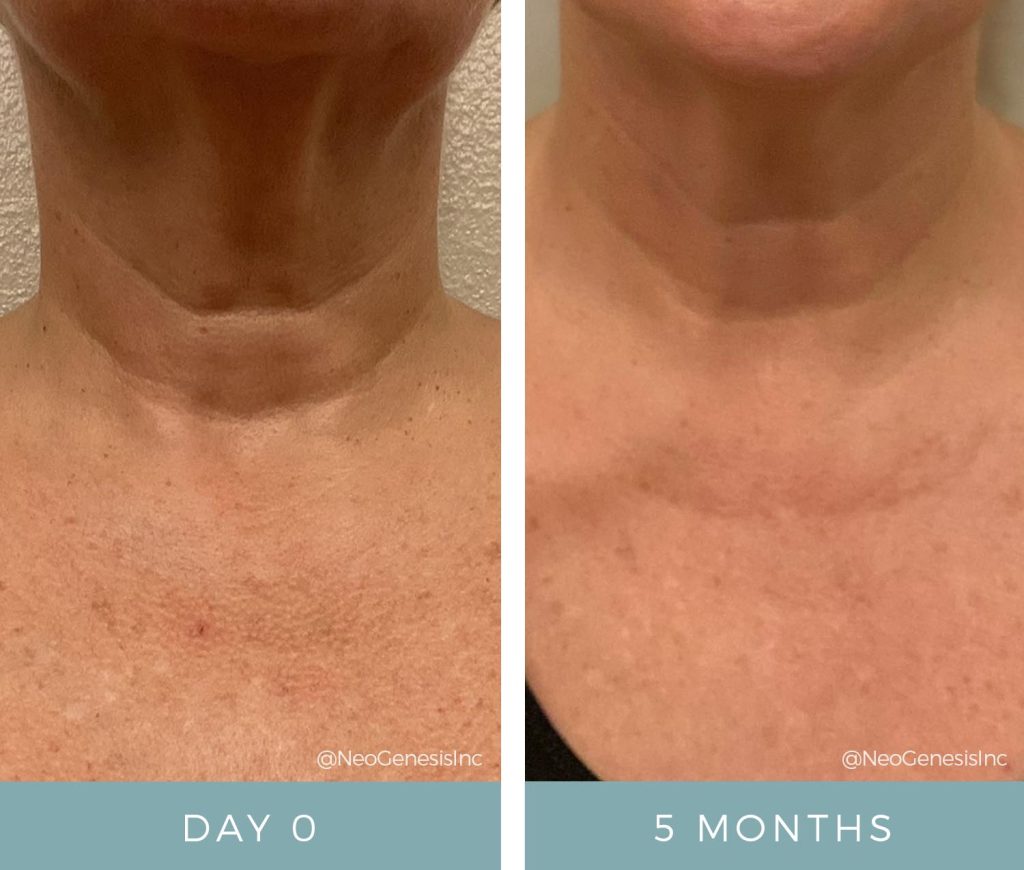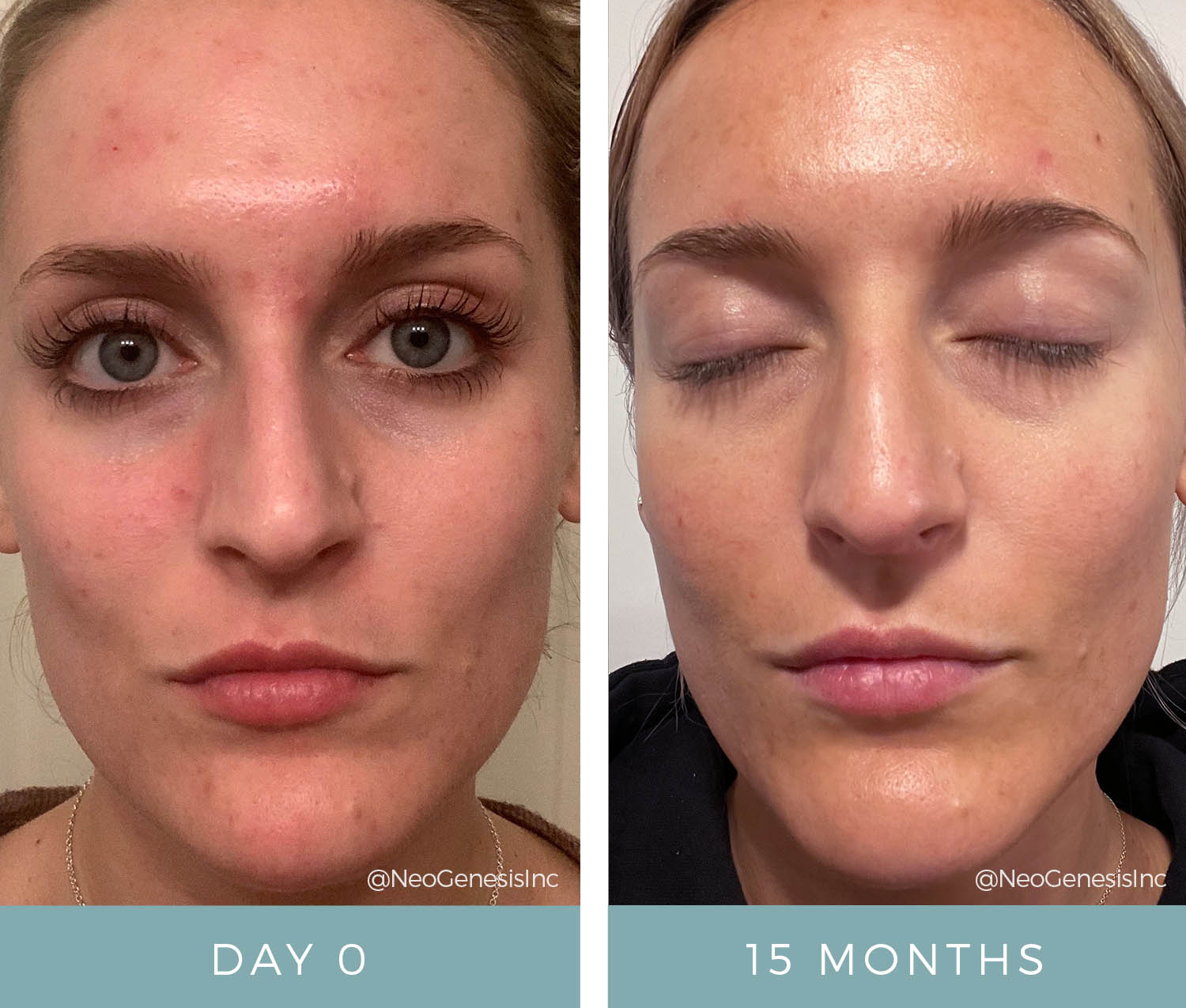Hormonal Acne

“PA has hormonal acne which is aggravated by her picking her skin, poor diet, inconsistent use of products and over-scrubbing her face, which has caused bacteria to spread.
She started the NeoGenesis line, but was not consistent with using the products, which delayed her progress.
Her face is feeling so much better now. She cannot remember the last time she had a cystic breakout. Her tone is much more even and glowy.” – SB
PRODUCTS USED:
Cleanser, Recovery, Salicylic Acid Gel, Mandelic Acid 8%, Barrier Renewal Cream, MB-1, Enzyme Crème Mask, Volcanic Ash Mask
FEATURED VIDEOS
HORMONAL ACNE
Hormonal acne is a common skin condition that affects both men and women, but it is more prevalent in women. It is characterized by breakouts on the face, neck, chest, and back that are triggered by hormonal fluctuations in the body. These breakouts can range from mild to severe and can be quite frustrating for those who experience them.
Hormonal acne is caused by an increase in androgens, which are male hormones that are also produced in small amounts in females. These hormones stimulate the oil glands in the skin to produce excess sebum, leading to clogged pores and acne breakouts. This often happens during puberty, pregnancy, menopause, or when using hormonal birth control or other medications that affect hormone levels.
One of the most frustrating aspects of hormonal acne is that it is difficult to control and can often be persistent. This is because hormones are constantly fluctuating in our bodies, making it challenging to pinpoint one specific cause or trigger for breakouts. However, there are some common factors that can contribute to hormonal acne, such as stress, diet, and lifestyle habits.
Stress plays a significant role in hormonal acne as it can trigger the production of cortisol, a stress hormone that can increase androgen levels and lead to breakouts. Additionally, diets high in dairy, sugar, and processed foods have been linked to worsening hormonal acne due to their potential to disrupt hormone balance.
Treating hormonal acne requires a multifaceted approach that addresses both internal and external factors. This may include managing stress levels, making dietary changes, and incorporating skincare products specifically targeted towards hormonal acne. It is important to consult with a skin care professional for personalized treatment recommendations.
NeoGenesis products support acneic skin, rebalancing and restoring the skin’s pH and natural sebum production.

“PA has hormonal acne which is aggravated by her picking her skin, poor diet, inconsistent use of products and over-scrubbing her face, which has caused bacteria to spread.
She started the NeoGenesis line, but was not consistent with using the products, which delayed her progress.
Her face is feeling so much better now. She cannot remember the last time she had a cystic breakout. Her tone is much more even and glowy.” – SB
PRODUCTS USED:
Cleanser, Recovery, Salicylic Acid Gel, Mandelic Acid 8%, Barrier Renewal Cream, MB-1, Enzyme Crème Mask, Volcanic Ash Mask
FEATURED VIDEOS
HORMONAL ACNE
Hormonal acne is a common skin condition that affects both men and women, but it is more prevalent in women. It is characterized by breakouts on the face, neck, chest, and back that are triggered by hormonal fluctuations in the body. These breakouts can range from mild to severe and can be quite frustrating for those who experience them.
Hormonal acne is caused by an increase in androgens, which are male hormones that are also produced in small amounts in females. These hormones stimulate the oil glands in the skin to produce excess sebum, leading to clogged pores and acne breakouts. This often happens during puberty, pregnancy, menopause, or when using hormonal birth control or other medications that affect hormone levels.
One of the most frustrating aspects of hormonal acne is that it is difficult to control and can often be persistent. This is because hormones are constantly fluctuating in our bodies, making it challenging to pinpoint one specific cause or trigger for breakouts. However, there are some common factors that can contribute to hormonal acne, such as stress, diet, and lifestyle habits.
Stress plays a significant role in hormonal acne as it can trigger the production of cortisol, a stress hormone that can increase androgen levels and lead to breakouts. Additionally, diets high in dairy, sugar, and processed foods have been linked to worsening hormonal acne due to their potential to disrupt hormone balance.
Treating hormonal acne requires a multifaceted approach that addresses both internal and external factors. This may include managing stress levels, making dietary changes, and incorporating skincare products specifically targeted towards hormonal acne. It is important to consult with a skin care professional for personalized treatment recommendations.
NeoGenesis products support acneic skin, rebalancing and restoring the skin’s pH and natural sebum production.







